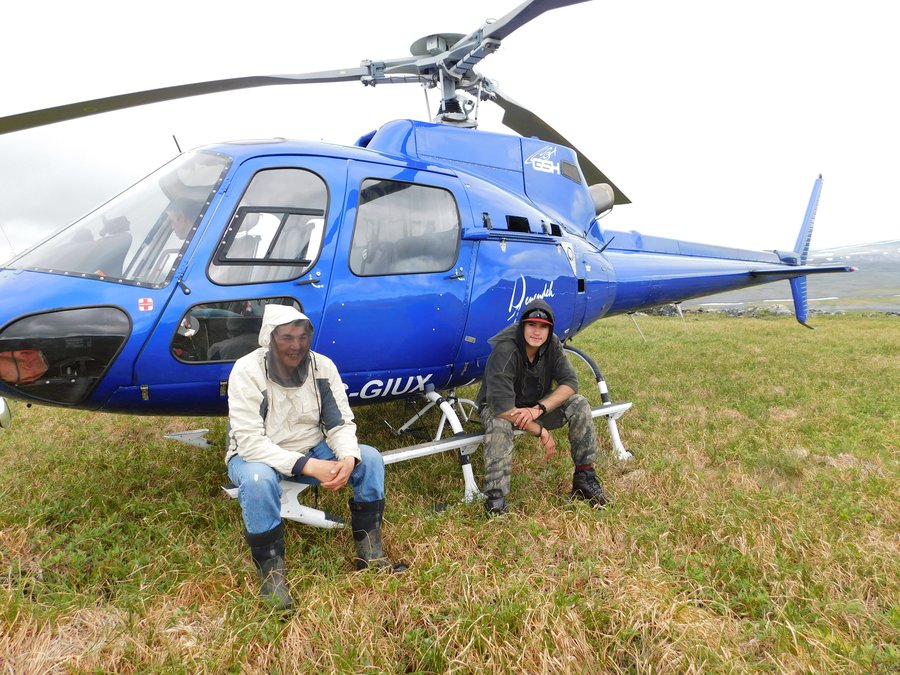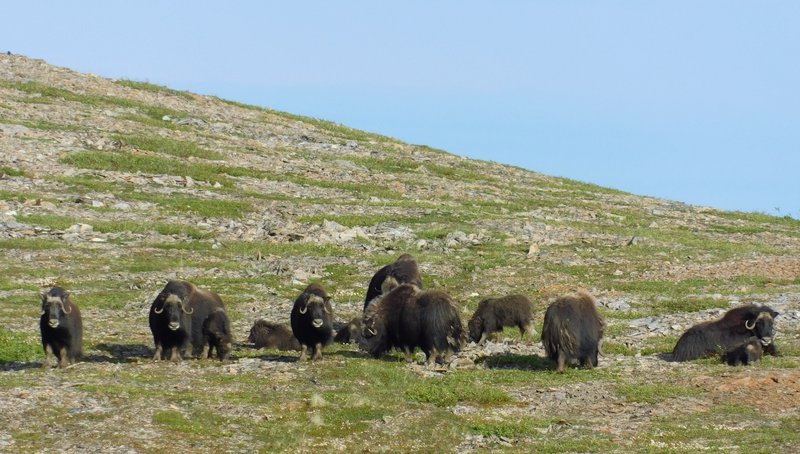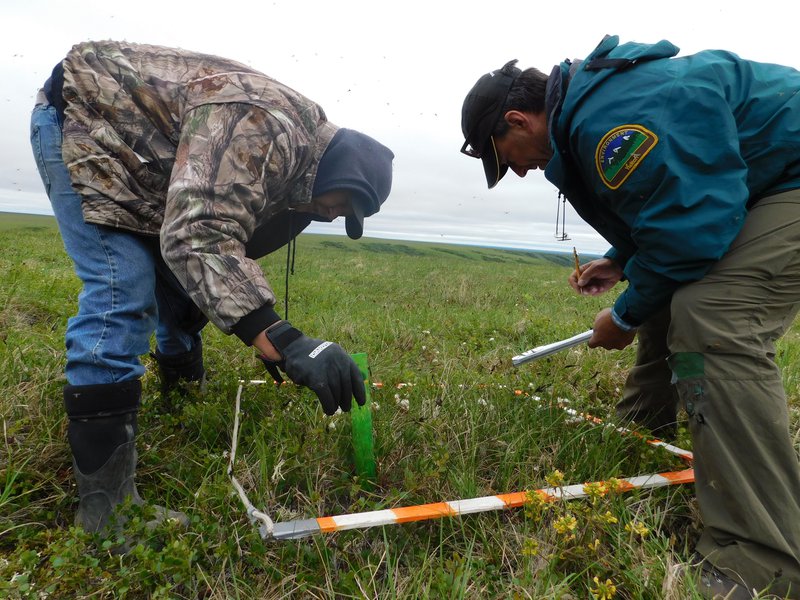Learning About Muskox on the Yukon North Slope
Posted on April 23, 2020
Muskox are an important part of the Yukon North Slope ecosystem. They are food for people and animals. As they roam, they cycle nutrients. And, they are a link to the region's prehistoric past, having survived the last ice age alongside caribou. But, there is still much we don't know about these shaggy, hoofed mammals.

Harvesters, knowledge holders, and scientists are working together to learn more. Over the past several years, GPS collars, aerial surveys, and harvest information have helped us understand things like where muskox travel and the composition of their groups.
The more we know, the better stewards we can be for this special place. So, guided by the new muskox research plan, our partners are taking the next steps to expand our knowledge.
New research currently underway (lead by Laurence Carter and Yukon Government) is taking us further. By using GPS collar information from muskox as well the the significant collar dataset for the Porcupine Caribou Herd, Laurence is exploring how muskox and caribou interact with each other and the environment. This kind of "big picture" work is important - no animal is an island! Interactions between species can inform decisions, like how and where harvesters hunt both species, which areas might need extra attention or protection, and how we can adapt to climate change in ways that conserve the whole ecosystem.

The second component of Laurence's work is helping us understand what effect muskox have on the landscape. She and several Inuvialuit field techs have been hunting for muskox scat and documenting the vegetation present at these grazing sites (the scat lets us know the muskox spent time there). This research includes noting the plant species present as well as measuring height and percent cover. Laurence can then compare this to vegetation at other sites to explore what kind of sites muskox prefer and the effect of muskox trampling on the sites they use.
(No, that's not dirt on the camera lens! Field staff sampling a vegetation plot contend with swarms of biting insects, like mosquitos and black flies, while they gather data. This kind of work requires lots of patience.)

Of course, this little highlight only skims the surface of muskox research, but we hope it gives a glimpse of some of the interesting work that is happening on the Yukon North Slope. We look forward to sharing some of Laurence's results over the coming months - stay tuned!
Laurence Carter is a Masters student at McGill University in Canada, working under the supervision of Murray Humphries. Her thesis is currently titled "Muskox resource selection and interactions with caribou in the Yukon North Slope."
To learn more about muskox research on the Yukon North Slope, check out the Muskox Research Plan and the Management Framework. We also have a podcast on how these came about.
